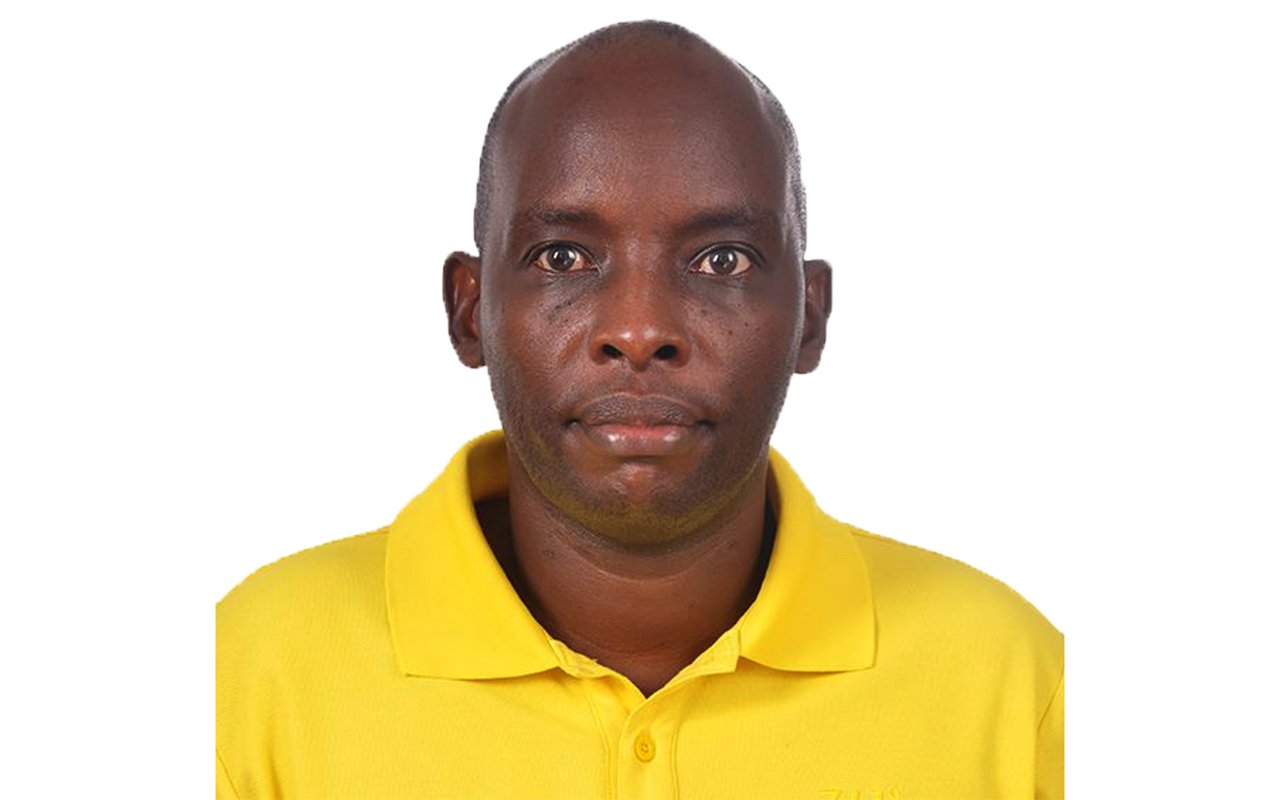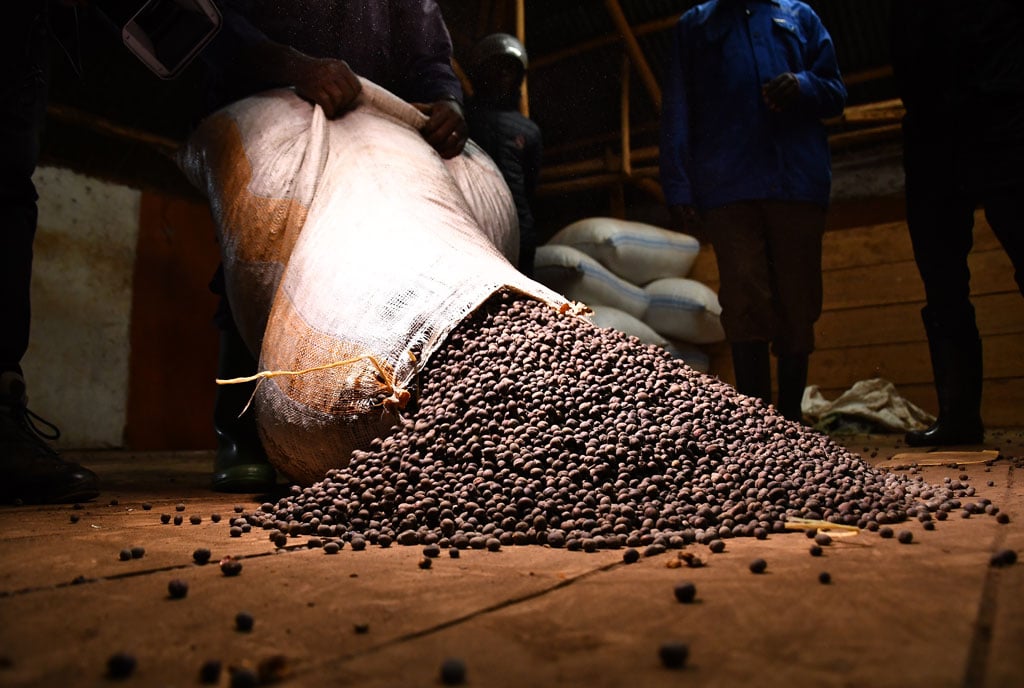
The entrance to the Parliament building. PHOTO/FILE
Barring a change of epic proportions, the House Speaker will gavel a plenary session to order in the northern district of Gulu on August 28. According to Mr Joel Ssenyonyi, the Leader of Opposition in Parliament (LoP), this is expected to cost the taxpayer as much as Shs5 billion.
A fortnight ago, Mr Chris Obore, the House’s director of communications and public affairs, said, “Parliament’s sitting in Gulu comes with so many benefits such as enabling [lawmakers] to go and see what it means to live outside Kampala.”
However, a visit to Gulu Regional Referral Hospital might prompt lawmakers to reconsider spending Shs5 billion or thereabouts on staging plenary across three days in the northern district.
Monitor has established that intermittent power challenges at the hospital recently caused its CT scan machine to break down.
“Our CT scans are still down because of power supply issues; our engineering team and Umeme are working on stabilising the power,” Mr Walter Uryekwun, the hospital’s administrator, disclosed.
Whereas Gulu Regional Referral Hospital has standby generators, we have established that they too are equally prone to frequent breakdowns. The revelation invites more discomforting questions on the priorities of the House.
In December of 2022, the House spent Shs591,666,660 on two 80kVA generators that were installed at the residences of House Speaker Anita Among and her deputy, Thomas Tayebwa.
In May of 2022, the World Health Organisation (WHO) spent Shs571.22 million to purchase and supply 250kVA generators to regional referral hospitals in Gulu, Kabale, and Jinja.
“We get power from Umeme, but this power is unreliable. Blackouts are common. Every two to three weeks, power goes off for some time, affecting our operations. But we have a functional backup generator, which always helps us whenever the power goes off,” Dr Alfred Yayi, the Jinja Regional Referral Hospital director, purred about the 250kVA generator WHO gave the medical facility.
According to Dr Yayi, the hospital’s major challenge is insufficient financial resources to fuel and maintain the generator.
“It is expensive to maintain it in terms of fuel,” he told Monitor, adding, “Every quarter we allocate Shs6 million for fuel alone and that means in a year we spend at least Shs24 million on fuel alone.”
Grossly understaffed
After the regional sitting in Gulu, the House leadership also plans to stage plenary sessions in the western (likely Mbarara), eastern (likely Mbale) and central (likely Masaka) parts of the country. Going by LoP Ssenyonyi’s guesstimate, the entire undertaking will cost the taxpayer not less than Shs20 billion.
In Gulu, besides the unreliable standby generators at a referral hospital that serves the entire Acholi Sub-region, if lawmakers attempt, as Mr Obore said, “to see what it means to live outside Kampala” they will encounter a poorly staffed medical facility. Since it counts only 27 staff, the hospital largely depends on student interns. But with the government only able to take in nearly half of the 2,706 interns eligible for deployment this financial year due to financial bottlenecks, the hospital is expected to run into a speed bump.
Mr Charles Tumusime, the Masaka Regional Referral Hospital principal administrator, said the problem of understaffing cannot be wished away.
“Out of the required 1,195 staff, we have only 269, which is 22.5 percent, leaving us with a gap of about 77.5 percent … the gap is very big and the work is overloaded,” he told Saturday Monitor, adding, “Many of our specialists are not available, and you know what that means when it comes to the role of these people in the national referral hospital.”
According to him, a recent needs assessment by the hospital’s technical staff put its financial requirement at Shs3.7 billion.
“Currently our budget allocation at the national medical store is Shs1.3 billion, which gives a gap of about 40 percent,” he disclosed, adding, “So very many times when a delivery is made within two weeks we are running short of some of the items.”
Silent deaths
In Jinja City, Mr Peter Okocha Kasolo, the mayor, said there are “silent deaths” going on at different health centres due to a lack of standby generators. According to the mayor, this problem is common at Bugembe, Walukuba and Budondo Health Centre IVs, among others.
To understand the role played by generators in health centres, this publication in April reported that Mayuge Health Centre IV in Mayuge District loses at least 12 babies annually to power outages. The 100 litres of fuel needed weekly is out of reach.
In Luuka District, the Senior Medical Officer at Kiyunga Health Centre IV, Dr Aaron Kenneth Nabongho, said the facility has spent five years without a functional generator, prompting them to use solar, which also “wears off after some time.” Dr Nabongho said they have a standby ambulance in case of power blackout, and refer most patients who need incubators to Nakavule Hospital in Iganga Municipality.
In Kigezi Sub-region, although some health centre IIIs and IVs are connected to the main hydropower grid, solar and standby generators, many others are struggling to offer health service delivery due to lack of lighting systems.
“All the 19-health centre IIIs in Kisoro District are not connected to the main hydropower grid and this has forced some health workers to use their mobile phone lights as they work on patients during night hours,” Ms Annet Dusabe, the Kisoro assistant district health officer-in-charge of maternal and child health, disclosed.
Mr Gilbert Ahumuza, the acting Rukiga District health officer, said unstable power supply has left the two health centre IVs depending on generators. All four health centre IIIs rely on solar power.
“Running generators at our two health centre IVs has become very expensive to an extent that sometimes I use my personal money to provide fuel for the ambulance to transport pregnant mothers to different referral centres,” Mr Ahumuza said.
Dr John Bosco Oryema, the officer in-charge of Pakwach Health Centre IV, said while they have a backup generator, their major hurdle has been the high costs of operating it.
“This (fuel) shortage may sometimes end up affecting the premature babies in the incubators,” he said.
Wrong choices
At Aywee Health Centre III in Pece-Laroo Division in Gulu City, there is no backup generator.
“Imagine even the regional referral still faces challenges of power even with the available backup generator, which requires much money, so we cannot manage the expenses,” Caroline Lakot, an assistant nursing officer at the facility, revealed, adding, “We now refer patients who need critical attention to the regional referral hospital or Lacor for further management.”
Aywee Health Centre III, Pajule Health Centre IV in Pader District face a similar challenge. Mr Richard Okwera, a clinical officer at Pajule Health Centre IV, said a dysfunctional generator at the facility has frustrated the quality of services.
Elsewhere, Buvuma Health Centre IV, the biggest health facility in the one of the Island district, has never been allocated a generator and operates on solar energy that also often blacks out due to lack of maintenance. Mr Yunus Maganda, the Nairambi Sub-county chairperson, said the facility was unable to offer some services to the patients because there is intermittent electricity supply and lack of a generator.
In Kumi District, Mr Nelson Elungant, the chairperson, said the hospital which serves Kumi, Bukedea and Ngora districts has been operating for the last four years without an X-ray machine, whose services are “urgently needed.”
In Masindi, Mr Michael Mudu, the district health educator, said while some health units continue to face challenges with reliable power supply, all the centres are equipped with solar systems that provide essential lighting.
Dr Jane Ruth Aceng, the health minister, recently revealed in a statement that they could only deploy half of the eligible interns because her ministry has only Shs23.4 billion at its disposal. If the Shs20 billion that is reportedly going to be spent on regional House sittings this financial year was rerouted to the Health ministry, the country would have significantly better outcomes.
Mr Dan Wandera Ogalo, a constitutional lawyer recently criticised the decision to allocate Shs20 billion to regional parliamentary sittings at a time when the country is unable to adequately fund essential healthcare services, calling it “insensitive.”
He emphasised the crucial role of medical interns, stating, “These are people who are going to save our lives.”
What health officials say....
Mr Gilbert Ahumuza, the acting Rukiga District health officer: “Running generators at our two health centre IVs has become very expensive to an extent that sometimes I use my personal money to provide fuel for the ambulance to transport pregnant mothers to different referral centres."

Members of Parliament during a plenary chaired by Speaker Anita Among at Parliament on July 2. Ms Among’s decision to convene plenary sittings across all four corners of the country has opened a can of worms. PHOTO/DAVID LUBOWA.
Mr Charles Tumusime, the Masaka Regional Referral Hospital principal administrator: “Out of the required 1,195 staff, we have only 269, which is 22.5 percent, leaving us with a gap of about 77.5 percent … the gap is very big and the work is overloaded."
Ms Annet Dusabe, the Kisoro assistant district health officer-in-charge of maternal and child health: “All the 19 health centre IIIs in Kisoro District are not connected to the main hydropower grid and this has forced some health workers to use their mobile phone lights as they work on patients during night hours.”
Compiled by Philip Wafula, Tausi Nakato, Abubaker Kirunda, Denis Edema, Simon Peter Emwamu, Teddy Dokotho, Jesus Okello Ojara, Tobbias Jolly Owiny, Robert Muhereza, Ismail Bategeka, Fred Wambede, Emmanuel Arineitwe & Naume Biira.






